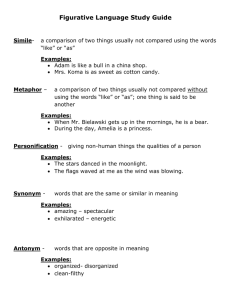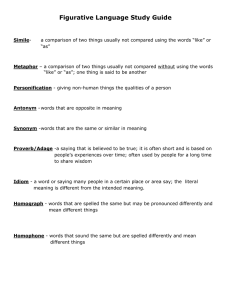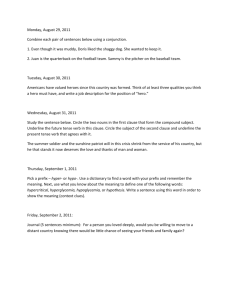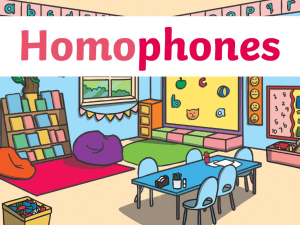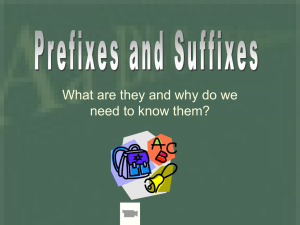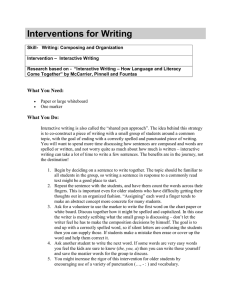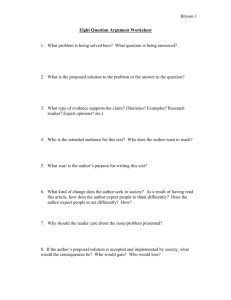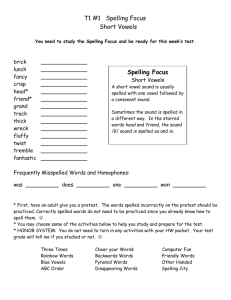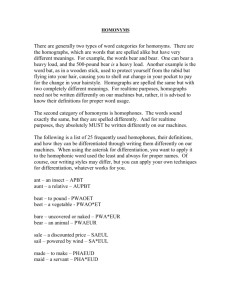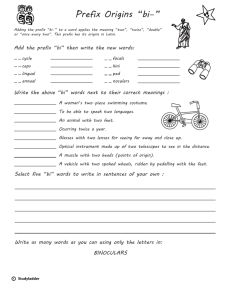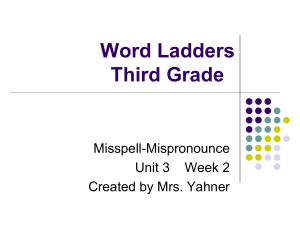Week 3 Word Work – focus on homophones, prefixes, suffixes
advertisement
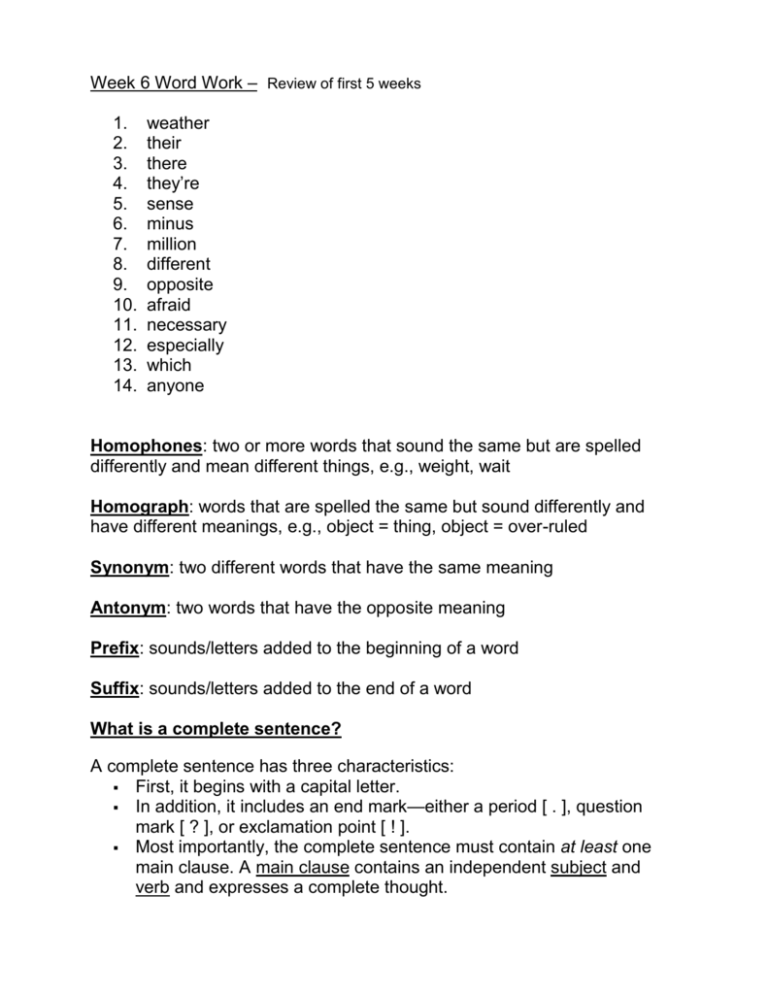
Week 6 Word Work – Review of first 5 weeks 1. 2. 3. 4. 5. 6. 7. 8. 9. 10. 11. 12. 13. 14. weather their there they’re sense minus million different opposite afraid necessary especially which anyone Homophones: two or more words that sound the same but are spelled differently and mean different things, e.g., weight, wait Homograph: words that are spelled the same but sound differently and have different meanings, e.g., object = thing, object = over-ruled Synonym: two different words that have the same meaning Antonym: two words that have the opposite meaning Prefix: sounds/letters added to the beginning of a word Suffix: sounds/letters added to the end of a word What is a complete sentence? A complete sentence has three characteristics: First, it begins with a capital letter. In addition, it includes an end mark—either a period [ . ], question mark [ ? ], or exclamation point [ ! ]. Most importantly, the complete sentence must contain at least one main clause. A main clause contains an independent subject and verb and expresses a complete thought. Prefix Meaning Example re again rebuild, review ex out, beyond extend, exclude mis Wrong, incorrect misunderstand under Below underground, undercover circu around Circumference Meaning Example ness state of being darkness, illness ful full of, having graceful, joyful est Most smallest, fastest ade Action or process blockade ous Having the quality of mysterious
